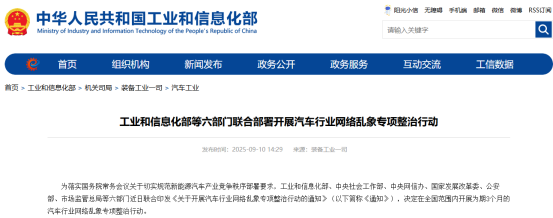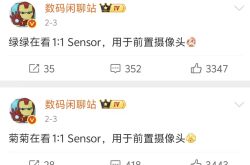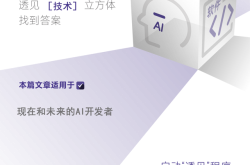China Launches Nationwide Campaign to Tackle Online Disorder in the Automotive Sector
![]() 09/11 2025
09/11 2025
![]() 637
637
On September 10, six key government departments—the Ministry of Industry and Information Technology, the Central Commission for Guiding Cultural and Ethical Progress (previously Central Social Work Department has been adjusted in context), the Cyberspace Administration of China, the National Development and Reform Commission, the Ministry of Public Security, and the State Administration for Market Regulation—jointly issued the "Notice on Initiating a Special Campaign to Rectify Online Disorder in the Automotive Industry" (hereinafter referred to as the "Notice"). This initiative marks the start of a three-month nationwide campaign aimed at addressing online chaos within the automotive sector.

The campaign's primary objectives are to rectify online misconduct, including illegal profit-seeking, exaggerated and false advertising, and malicious smearing and attacks. It seeks to enhance the efficiency and quality of handling online issues involving automotive companies, encourage enterprises to standardize their marketing and advertising practices, foster a positive public opinion environment, and safeguard the high-quality development of the automotive industry. The key issues to be addressed fall into three main categories:
1. Illegal Profit-Seeking Practices
(1) Creating false images and videos, fabricating stories, and hyping negative topics related to automotive companies. This includes maliciously interpreting sales fluctuations, attacking business development strategies, and other tactics aimed at generating online traffic and commercial benefits.
(2) Leveraging their influence under the guise of "news supervision," "public opinion supervision," or "science popularization" to obtain commercial benefits through false or non-standard evaluations that blend commerce with testing, or testing that favors commerce. Some even go as far as extorting "protection fees" from automotive companies by releasing false or inaccurate information, or negative information at critical junctures such as product launches or financing rounds. They may also steer conversations in comment sections to coerce companies into business partnerships.
(3) Utilizing technologies like motherboard machines and generative artificial intelligence to create new forms of "online water armies," producing false content, fabricating popularity and trends, evading platform monitoring, and seeking illegal profits.
2. Exaggerated and False Advertising
(1) Making false or misleading claims about the performance, functions, quality, and sales status of automobiles and power batteries, thereby deceiving and misleading consumers.
(2) Automotive companies manipulating institutions or evaluation accounts to conduct false or non-standard evaluations. This includes citing or fabricating false data, selectively disclosing sales figures, and creating various sales rankings under false pretenses.
(3) Creating and hyping topics through industry events such as exhibitions and forums, as well as online marketing and advertising campaigns, causing adverse impacts on the industry and society.
3. Malicious Smearing and Attacks
(1) With the intent to suppress competitors, smearing and attacking automotive companies or products, tarnishing their reputations, and making malicious complaints.
(2) Organizing and manipulating online water armies, "black public relations" groups, "black mouths," and "fan circle" enthusiasts to jointly release false and negative information about automotive companies and entrepreneurs. This includes inciting online emotions, engaging in "verbal wars," and maliciously smearing competitors.
(3) Automotive company executives using their influence to "troll" and provoke conflicts online.







